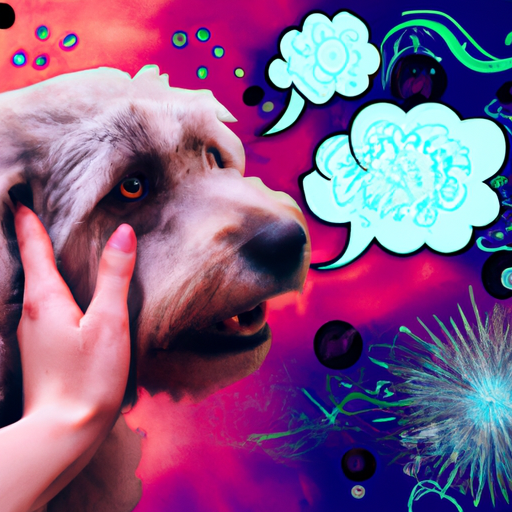“`markdown
How to Deal with Anxiety in Dogs
Understanding Canine Anxiety
Dear caregiver, it’s important to first understand what dog anxiety is before learning how to manage it. You see, just like humans, dogs can also experience anxiety. This can stem from various factors such as fear, separation, or aging.
Dogs express anxiety through different behaviors, which can be easily misunderstood. These might include:
- Excessive barking
- Pacing
- Shaking
- Destructive behavior
Understanding these signs is the first step towards helping your furry friend.
Identifying The Triggers
Now, as you’ve got an understanding of what dog anxiety is, let’s dive into identifying the triggers. Anxiety in dogs can be triggered by a variety of factors:
- Loud noises: Fireworks, thunderstorms, or loud music can easily scare your dog.
- Separation: Some dogs get anxious when left alone. This is known as separation anxiety.
- New environments: Moving to a new place or introducing new people or pets can also trigger anxiety.
Identifying these triggers is like finding the key to a lock. It helps you to deal with the situation more effectively.
Implementing Solutions
Once we’ve recognized the triggers, it’s time to implement solutions. Dealing with dog anxiety involves a mix of training, preventive strategies, and sometimes medical treatment.
Here are some strategies you can employ:
- Desensitization: Gradually expose your dog to their anxiety trigger to lessen their reaction.
- Counterconditioning: Replace the anxious or aggressive behavior with a more desirable one.
- Medication: If the anxiety is severe, your vet may recommend medications or natural therapies.
| Strategy | Description |
|---|---|
| Desensitization | Gradually expose your dog to their anxiety trigger to lessen their reaction. |
| Counterconditioning | Replace the anxious or aggressive behavior with a more desirable one. |
| Medication | If the anxiety is severe, your vet may recommend medications or natural therapies. |
Seeking Professional Help
Sometimes, despite your best efforts, professional help may be needed. Don’t feel discouraged, dear caregiver. It’s okay to seek help. A professional dog trainer or a vet can provide invaluable insight and help ease your dog’s anxiety more effectively.
Caring for Yourself
Finally, remember to also take care of yourself. Dealing with a dog with anxiety can be stressful. Make sure you’re also getting the support you need. After all, a relaxed and happy you makes for a relaxed and happy dog.
FAQs
Q1. How do I know if my dog has anxiety?
A1. Common signs include excessive barking, pacing, shaking, and destructive behavior.
Q2. What can trigger anxiety in dogs?
A2. Triggers can include loud noises, separation, and new environments.
Q3. When should I seek professional help?
A3. If your dog’s anxiety is severe or if the strategies you’re implementing aren’t working, it might be time to seek professional help.
Q4. Can medication help my anxious dog?
A4. Yes, in some cases, vets may recommend medications or natural therapies to help manage anxiety in dogs.
Q5. How can I support myself while caring for an anxious dog?
A5. Seek support from friends, family, or professionals. Remember, it’s important to take care of yourself too.
“`



